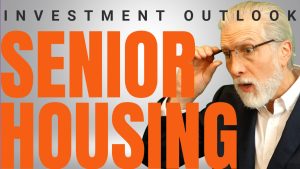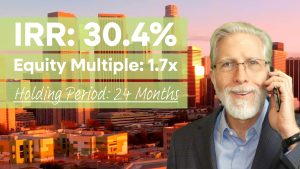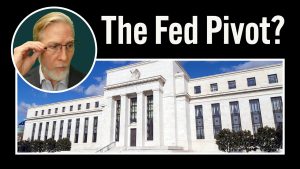Takeaways
- The CRE industry has now accepted there’s no going back to pre-pandemic times.
- Higher interest rates and slower economic growth will prevail in “The Great Reset.”
- Distress, especially in the office sector, could serve as a catalyst for transactions.
This month, the Urban Land Institute and Price Waterhouse Coopers jointly published the 2024 edition of their Emerging Trends in Real Estate report. It’s an annual publication that’s based on surveys, interviews, and focus groups with market participants and leading experts within the commercial real estate industry. If you invest in commercial real estate, you definitely need to be reading this report each and every year as soon as it’s published.
Here’s a summary of the first 5 of 10 emerging trends that are detailed in the report. These are some of the topics that came up again and again in conversations with the research participants. Clearly, they’re top-of-mind issues for real estate professionals, ones that are very much influencing their actions and behavior.
Trend 1 - Higher and Slower for Longer
The idea that we’re soon going back to the recent heyday of easy money and near-zero interest rates is little more than wishful thinking. Instead, the new normal is going to be characterized by elevated interest rates and slower economic growth. We just might avoid an imminent recession. However, be careful what you ask for. If the Fed does pull off a soft landing, they’re likely to conclude that the economy can handle higher interest rates. In which case, they’re equally as likely to just leave them elevated.
Trend 2 - The Great Reset
The real estate industry must now recalibrate itself to the new normal of higher interest rates and slower economic growth. This will necessitate more focus on fundamentals, being more conservative in underwriting and proforma assumptions. This will mostly negate the possibility of acquisition and development at previous price points. Ultimately, cap rates will have to rise as things reset. Operational efficiencies are going to be more important going forward as emphasis shifts to the expense side of operating statements.
Trend 3 - A Painful but Needed Capitulation
Office will never be the same again. It’s not going back to the way it was before the COVID-19 pandemic. It’s become very much a bifurcated market. Future-ready office buildings, those that are characterized by tech and amenities that improve the safety, health, and comfort of their tenants, are doing fine. It’s the others that are in trouble. A significant share of office inventory in the United States is now functionally obsolete. It will need to be upgraded, converted to other uses, or simply demolished.
Trend 4 - It’s All About the Debt
Capital for commercial real estate has become much less available and, when it can be obtained, it’s expensive. This is one of the reasons for the recent dearth of transactions. Banks have significantly reduced the availability of credit for commercial real estate over the past 20 or so month, coinciding with increases in the federal funds rate and reinforced by the banking crisis of 2023. This does not portend well for the plethora of borrowers with loans maturing over the next couple of years. As distress grows, it might finally provide the catalyst for transactions en masse.
Trend 5 - Eco-Anxiety Comes Home
As the number of billion-dollar climate events continues to rise, so does the cost of commercial property insurance. To paraphrase one of the respondents in the report, “insurers are bringing the cost of climate events to the insured in real time.” Even if the cost is passed through to tenants, at some point it becomes unsustainable. This ties in with the climate-related regulations of local municipalities in many of the leading CRE markets and the ESG mandates of investors, both of which are growing. It all suggests a future where climate risk becomes a much more prevalent factor in determining market value.
See Part 2 of this article for my summary of the remaining 5 of 10 emerging trends in the report. The 2024 edition of Emerging Trends in Real Estate can be downloaded as a PDF from the following link: https://knowledge.uli.org/-/media/files/emerging-trends/2024/2024-etre-us.pdf




















